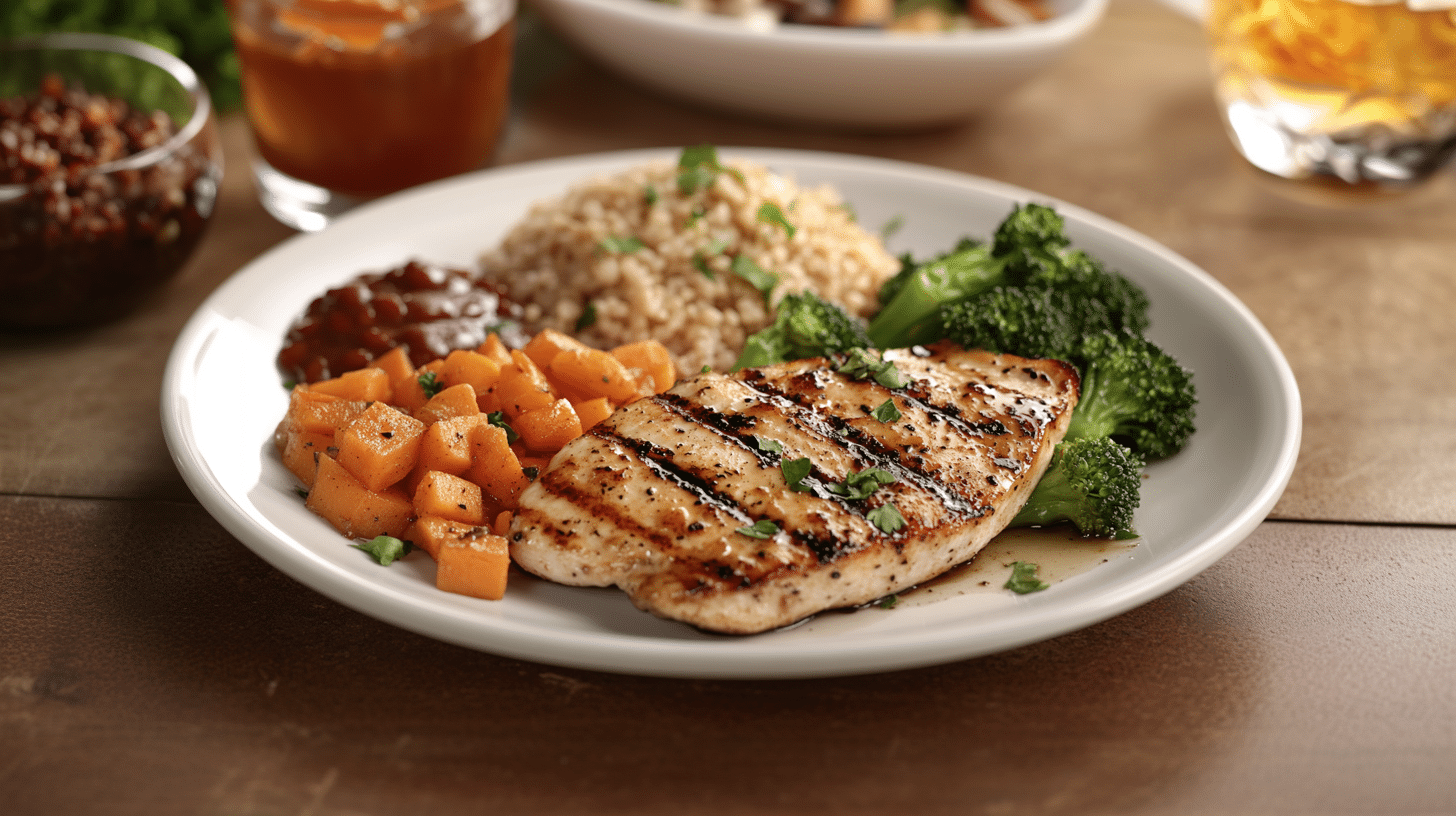Portion control has emerged as a powerful ally in achieving and maintaining a healthy weight. Managing dietary habits can often feel overwhelming in a world filled with tempting food options. However, portion control offers a practical and sustainable strategy for those seeking to take control of their eating habits. Focusing on the amount of food served and consumed helps individuals distinguish between portion size and serving size, a critical distinction for maintaining a balanced diet. With its direct impact on calorie intake and nutritional value, understanding the science behind portion control and embracing mindful eating can lead to healthier habits and lasting weight management success.

Understanding Portion Control
Portion control is a powerful tool in the battle against weight gain. By managing the amounts of food we consume, we can align our eating habits with our health goals. Being mindful of food portions allows us to enjoy our favorite foods while keeping track of our calorie intake. This approach doesn’t ask us to give up foods we love but encourages healthier eating through conscious awareness of portion sizes. Learning to control portions can improve our body weight and offer advantages like better blood pressure and overall health.
Defining Portion Size vs. Serving Size
Understanding the difference between portions and serving sizes is key to managing food intake. Serving size is the standardized amount the FDA sets, often found on Nutrition Facts labels. This site shows what people typically consume but doesn’t dictate how much one should eat. Portion size, however, is the actual amount you eat and can differ from the serving size. While Nutrition Facts are based on serving sizes, many people eat more or less than these amounts, often leading to “portion distortion.” The FDA is updating serving sizes to reflect current eating habits, helping us better portion our food.

Importance of Portion Control in Weight Management
Portion control is crucial in weight management by helping regulate caloric intake. Awareness of food portions helps us make healthier choices and keeps our body weight in check. It also supports healthier habits and can help manage diseases like diabetes and heart disease. One effective strategy is to keep a food diary, which helps track eating patterns and avoid overeating. Simple techniques like eating from smaller dinner plates or having water before meals can aid in portion control and support weight loss goals.

The Science Behind Portion Control
Portion control is a simple yet effective strategy for managing weight. By focusing on food sizes, we can better control caloric intake and maintain a healthy body weight. This method is not about restricting favorite foods but rather about being mindful of the amounts of food consumed. Understanding portion sizes and how they affect nutrition is key to achieving weight loss goals.
How Portions Affect Calories and Nutrients
Portion sizes play a massive role in calorie intake. More significant portions can lead to more calories than necessary, causing weight gain. With eating out becoming more popular, restaurant portions often exceed federal guidelines, increasing calorie consumption. Over the last century, available calories per person have increased by 20%. Distinguishing between portion size, which is what you choose to eat, and serving size, a measured amount helps in effective portion control. By keeping portions correct, we can get the nutrients we need without overeating, helping us stay at a healthy weight.
The Role of Mindful Eating
Mindful eating is about paying attention, which can make meals more enjoyable. Eating slowly and focusing on each bite can help us better control portion sizes. Reducing distractions like TV during meals helps us notice our hunger signals. Checking in on hunger levels during eating can stop overeating and build a better relationship with food. Keeping a food diary can raise awareness of food intake and improve choices, helping with weight loss. Combining mindfulness with portion control leads to a deeper understanding of food choices and healthier eating habits.

Practical Techniques for Portion Control
Portion control is an effective strategy for managing weight. It involves being aware of the sizes of foods consumed to maintain a balanced diet. By controlling portion sizes, you can enjoy your favorite foods while keeping your calorie intake in check. This method helps prevent overeating and consuming more significant portions, which can lead to weight gain. Below are some practical techniques to help with portion control.
Using Smaller Plates and Bowls
Using smaller plates and bowls can make a big difference in how much food you eat. You can feel more satisfied with less food by tricking your brain into thinking your plate is full. Studies show that using smaller tableware can reduce calorie intake by up to 29%. Interestingly, plate size, shape, and color can impact how much you eat, with larger plates often leading to eating more than needed.
Measuring Portions with Hands and Tools
Measuring portions with your hands is a simple way to gauge food amounts. For example, a palm-sized portion for women and two palms for men is recommended for high-protein foods. Vegetables or fruits should be one cupped hand for women and two for men. Using kitchen scales and measuring cups also ensures accurate food intake. To visualize portion sizes on a plate, divide it into four sections: a quarter for protein, a quarter for starches, and a half for vegetables or fruits.
Keeping a Food Diary
Keeping a food diary is an excellent tool for managing portion sizes. By writing down everything you eat, you become more aware of your consumption patterns, helping to prevent overeating. Honest entries about food intake, including what, how much, and why you eat, can help identify and correct bad habits. People who maintain a food diary often find it easier to make healthier eating choices and manage their body weight more effectively. This increased awareness can lead to lasting positive changes in diet.
Take Charge of Your Wellness with Portion Control
Portion control is crucial in achieving and maintaining a healthy weight, providing a practical approach to managing dietary habits. By understanding and applying the principles of portion control, individuals can make significant progress toward their weight loss goals. Regner Health Solutions offers personalized consultations for those seeking expert guidance in adopting healthier eating habits. Contact (952) 900-3994 to schedule a weight loss consultation and take the first step toward a healthier, more balanced lifestyle.






